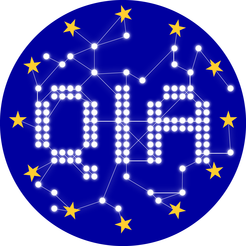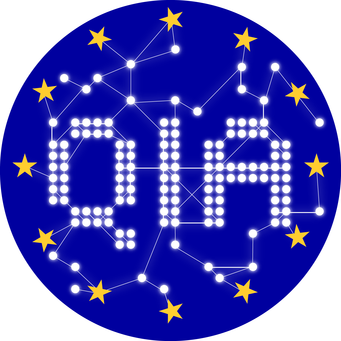EU Awards 10 Million Euros to a Consortium to Speed up the Development of Quantum Internet
A new Europe-wide programme on advancing technologies for quantum networks is being launched.

The blueprint will be developed by the Quantum Internet Alliance, a consortium of leading quantum research groups – including the Max Planck Institute of Quantum Optics – and high tech companies in Europe led by QuTech from Delft University in The Netherlands. The aim of the consortium is to develop the necessary technology for such a quantum internet, ensuring a leading role for European industry in this emerging field of technology. The funds granted by the EC are part of a first phase of funding from the one billion euros 10-years Flagship Programme.
A quantum internet uses an intriguing quantum phenomenon to connect different nodes in a network. In a classical network connection, nodes exchange information by sending electrons or photons hence and forth, making them vulnerable for eavesdropping. In a quantum network, the nodes are connected by ‘entanglement’, where a change in the state of one node instantly affects the others without exchanging information. This allows for communication that is inherently secure by nature. Applications of networks based on quantum entanglement include improving the security of for instance financial transactions, and could give inherently secure networks.
“We are very close to building the first quantum networks with three or four nodes now. This grant allows us to speed up in order to keep Europe at the front of this fascinating field of research and technology development,” says Stephanie Wehner, professor at the Delft University and coordinator of the Quantum Internet Alliance. “Importantly, this project establishes a team of researches from computer science, engineering and physics as well as high tech industry across Europe, because we can only be successful together. By building quantum networks, we want European research groups and high-tech industry to be at the forefront of what could be a completely new field of technology.”
Realizing the potential impact of a quantum internet requires a sustained and focused effort. For instance, entanglement should be created much faster than it gets lost. With the funding of the EU Quantum Flagship, the Quantum Internet Alliance will establish the first multi-node quantum processor networks, lay the groundwork for quantum repeater technology to allow quantum bits to travel long distances, and develop the first software and network stack for allowing scalable control and software development to make a quantum internet useful.
The Quantum Internet Alliance consists of twelve leading research groups at universities from eight European countries, in close cooperation with over 20 companies and institutes. For more information please visit http://quantum-internet.team.
The Quantum Flagship was launched in 2018 as one of the largest and most ambitious research initiatives of the European Union. With a budget of one billion euros and a duration of 10 years, the Flagship initiative brings together research institutions, academia, industry, enterprises, and policy makers, in a joint and collaborative initiative on an unprecedented scale. The main objective of the Flagship is to consolidate and expand European scientific leadership and excellence in this research area, as well as to transfer quantum physics research from the lab to the market by means of commercial applications and disruptive technologies. With over 5000 researchers from academia and industry involved in this initiative throughout its lifetime, it aims to create the next generation of disruptive technologies that will impact Europe’s society, placing the region as a worldwide knowledge-based industry and technological leader in this field. For more information please visit https://qt.eu/.
Text: QuTech (TU Delft, Niederlande), MPQ












